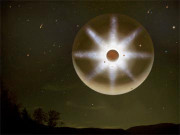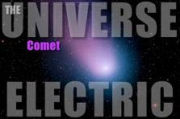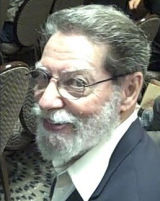|
|
The Fairy-Tale Cult of Wikipedia
by Henry H. Bauer
|
|
January 22, 2010
|
|
|
A correspondent who shares my interests in cosmology and in the suppression of novel ideas
alerted me to the manner in which Wikipedia has been censoring and denigrating suggestions
about the influence of electromagnetic forces on large-scale phenomena in the universe: see
"Wikipedia Woes Pending crisis as editors leave in droves" (by Dave
Smith, 2009/12/26).
Wikipedia's dogmatic defense of a mainstream scientific belief, together with character
assassination of those who point to defects in that belief, will be familiar enough to
AIDS Rethinkers (Beware the Internet:
Amazon.com "reviews", Wikipedia, and other sources of misinformation, 11 April 2009).
It takes only one dedicated fanatic to dominate any given Wikipedia entry or topic, and arbitration
on Wikipedia is controlled by sometimes anonymous individuals whose credentials are thereby unknown.
[Emphasis added]
What I found most interesting about this described censorship was the persistent "contributor",
"ScienceApologist", who boasts of being absolutely determined to keep out of Wikipedia
everything not presently sanctioned by the high Pooh-Bahs of mainstream science.
ScienceApologist gives a self-description* that raises the suspicion that he, she, or they is
or are in reality a Trojan Horse designed to discredit all who claim to defend science. I
could not reach a conclusion as to whether or not this self-description was written satirically,
because it is so perfect a send-up of the most extreme scientism "scientism" being
the quasi-religious belief that contemporary science is the place to get true answers to
everything. For example:
Wikipedia is inherently a non-innovative reference work: it stifles creativity and free-thought.
If Wikipedia had been around at the time of Galileo, his ideas would have been subject to my
incisive commentary and editorial braggadocio even if I agreed with him. I am a status quo promoter.
Surely this gives the game away! Only a self-satirist, a person of unsound mind, or a fifth
columnist would write something like that. But ScienceApologist was so assiduous in his
harassment of Eric Lerner over concepts about an "Electric Universe" [Editor's
note: even though Eric Lerner is not noted anywhere as an Electric Universe proponent],
leading even to Lerner being barred from contributing to Wikipedia on subjects on which he
is expert, that the fifth-columnist possibility doesn't seem applicable unless ScienceApologist
is an anarchist or terrorist who accepts "collateral damage" in the pursuit of his cause
and feels no guilt about causing collateral damage. The self-satirist possibility seems to fail on
similar grounds. One is then left with the possible explanation that ScienceApologist is of
unsound mind. Within that explanation there is a more specific, albeit extremely farfetched
scenario: ScienceApologist is actually the pseudonym of a proponent of a non-mainstream theory
about electromagnetism in the universe that competes with Lerner's ideas, and ScienceApologist
is trying to kill two birds with a single approach: discrediting mainstream science by impersonating
the extremity of scientism while at the same time preventing Wikipedia from giving a fair account
of Lerner's ideas.
Leave aside, though, what could motivate ScienceApologist, and note merely that he wants progress
to stop. He boasts of wanting to suppress Galileo's insights even knowing their value and basic
truth, and brags about helping Wikipedia stifle creativity and free-thought! He is in some ways
like the Luddites who rioted against the Industrial Revolution, yet ScienceApologist is even more
extreme, because he wants to stop not merely material change but the advance of human understating.
In the name of science, of course!
ScienceApologist's self-portrait contains a number of references to Wikipedia "principles"
that helped me realize that Wikipedia is best described as a cult, defined as:
“Obsessive, especially faddish, devotion to or veneration for a
person, principle, or thing. . . . An exclusive group of persons sharing an esoteric, usually
artistic or intellectual interest” (American Heritage Dictionary).
ScienceApologist asserts:
I act to mitigate, redesign, and occasionally destroy the offerings of users who think that a
particular 'breakthrough' or 'notable idea' deserves more consideration than it has gotten in
the academic world. Such grandstanding is forbidden by a variety of Wikipedia policies and
guidelines (WP:V, WP:SOAP, WP:NOR, WP:FRINGE, WP:WEIGHT, WP:NOT, and WP:REDFLAG to name just a few).
Here's an immediate clue to a diagnosis of cultism: pseudo-technical insider jargon. Compare,
for example, Scientology's MEST (matter, energy, space, time), 8 dynamics, "engrams",
"clears", "thetans", etc.
In the cold light of rational day, these Wikipedia policies and guidelines can be seen as some
combination of wishful thinking, childish naivety, megalomania, and the like divorce from reality.
"WP:V*"
stands for "Verifiability": “Material challenged or
likely to be challenged, and all quotations, must be attributed to a reliable, published
source.” The rub, of course, is in who is to judge "reliable"?
Naturally, Wikipedia offers guidance:
-
“Reliable sources* This page documents an English Wikipedia content guideline.
It is a generally accepted standard that editors should attempt to follow, though it is best treated
with common sense, and occasional exceptions may apply. Any substantive edit to this page should
reflect consensus. When in doubt, discuss first on the talk page.”
One notices that this does not erase the original rub, given the failure, indeed the impossibility,
of defining, "generally accepted", "common sense", and "consensus",
even without the "occasional exceptions".
The other principles and guidelines cited by ScienceApologist are no less irrationally dogmatic
and impossible to apply objectively:
-
WP:SOAP*:
“Wikipedia is not a soapbox, a battleground, or a vehicle
for propaganda and advertising”
but ScienceApologist and HIV/AIDS vigilantes and untold others have used it and continue to
use it precisely as soapbox and battleground, and Wikipedia's supposed means of resolving disputes
have not put a stop to that.
-
WP:NOR*:
“Wikipedia is not a place to publish your own thoughts
and analyses or to publish new information”
but the mainstream-defending dogmatists are precisely publishing their own thoughts and
analyses; and it is not obvious what "new" information is supposed to be excluded.
What if it's from "reliable sources"?
-
WP:FRINGE*:
“In order to be notable enough to appear in Wikipedia, an
idea should be referenced extensively, and in a serious manner, in at least one major publication,
or by a notable group or individual that is independent of the theory. Even debunking or
disparaging references are adequate, as they establish the notability of the theory outside
of its group of adherents.”
note first that a judgment is already implicit in the heading "Fringe", and then
of course there are the host of following imprecisions ("extensively",
"serious", "major", "notable", "independent").
Worse perhaps is the apparent allowing of "debunking or disparaging", as though
adherents of a "fringe" matter ought to be honored to mentioned at all in Wikipedia.
“Coverage on Wikipedia should not make a fringe theory appear
more notable than it actually is.[1] Since Wikipedia describes significant opinions in its articles,
with representation in proportion to their prominence,[2] it is important that Wikipedia itself
does not become the validating source for non-significant subjects”
as though Wikipedia could or should ever be regarded as a "validating source"!
Printed encyclopedias carried a certain imprimatur because the publisher's reputation and
therefore livelihood hinged on the validity of its entries, and often the individuals
responsible for those entries were identified or identifiable. In Wikipedia, we have anonymous
and pseudonymous contributors and editors, whose penchant for denigrating the views of others
is evident on any matter where differing views on a particular subject exist.
-
WP:WEIGHT*: “Neutrality
requires that the article should fairly represent all significant viewpoints that have been
published by a reliable source, and should do so in proportion to the prominence of each.
Now an important qualification: In general, articles should not give minority views as much
or as detailed a description as more widely held views; generally, the views of tiny
minorities should not be included at all. For example, the article on the Earth does
not mention modern support for the Flat Earth concept, the view of a distinct minority.
In articles specifically about a minority viewpoint, the views may receive more attention
and space. However, such pages should make appropriate reference to the majority viewpoint
wherever relevant, and must not reflect an attempt to rewrite content strictly from the
perspective of the minority view.”
This of course underscores ScienceApologist's declared ambition to keep out of Wikipedia
even ideas like Galileo's that turned out to be correct and that overturned an incorrect
majority view.
-
WP:NOT*:
specifies all the things that "Wikipedia is not" even as many entries
illustrate that in practice it is, for example, a soapbox and battleground.
-
WP:REDFLAG**: “Certain red flags should
prompt editors to examine the sources for a given claim:
surprising or apparently important claims not covered by mainstream sources;
reports of a statement by someone that seems out of character, embarrassing, controversial,
or against an interest they had previously defended;
claims that are contradicted by the prevailing view within the relevant community, or which
would significantly alter mainstream assumptions, especially in science, medicine, history,
politics, and biographies of living persons. This is especially true when proponents consider
that there is a conspiracy to silence them. Exceptional claims in Wikipedia require high-quality
sources.[5] If such sources are not available, the material should not be included. Also be sure
to adhere to other policies, such as the policy for biographies of living persons and the undue
weight provision of Wikipedia:Neutral point of view.”
That last policy, principle, or guideline is perhaps the only one that actually needs to be
cited, to show what Wikipedia really is (a fairy-tale cult) and is not (an objective, reliable
source):
-
“Neutral point of view (NPOV)* is a fundamental Wikimedia principle and
a cornerstone of Wikipedia. All Wikipedia articles and other encyclopedic content must be
written from a neutral point of view, representing fairly, and as far as possible without
bias, all significant views that have been published by reliable sources. This is non-negotiable
and expected of all articles and all editors.”
Right. Anonymous and pseudonymous contributors all have neutral points of view. Their strong
motivation to contribute is a natural corollary of possessing a neutral point of view on all
matters significant ("notable") enough to be in Wikipedia. Non-negotiable!
[Editor's note: *ALL of the Wikipedia references above are subject to change without notice,
at the whims of any editors who want to change them at any time. Since Dr. Bauer wrote this
article, a good number of the "policies and guidelines" have been altered. Such
is the reliability of Wikipedia.]
These "principles and guidelines" reek of the belief that complex matters are really
simple, just so long as everyone is as rational and intelligent as those who created Wikipedia;
and the belief that human beings are able to behave ideally, namely, like rational robots
programmed by straightforward formulas.
The assertions that Wikipedia actually "is" and "is not" these various
things remind me of a present given to me when I left the University of Kentucky to become
Dean of Arts & Sciences at Virginia Tech: a framed motto, "Saying so, makes it so",
referring to an
old essay of mine that had struck a spark of recognition among many in academe.
Cults are characterized by the accepting on faith of unproven assertions ("Saying so,
makes it so"), that emanate from the cult's guru; examples that spring to mind are Objectivism
and Ayn Rand, the Unification Church and Sun Myung Moon, Dianetics/Scientiology and L. Ron Hubbard.
The fundamental reason why Wikipedia is so cult-like may be that it too was founded by a guru,
Jimmy (Jimbo) Wales, who describes himself as "an Objectivist and, with reservations, a
libertarian". 'Nuff said?
Not quite. I enjoyed Ayn Rand's books, especially The Fountainhead and Atlas
Shrugged, probably as much as anyone; just as I've enjoyed Leslie Charteris's "Saint"
books, say, and many other works that are fundamentally fairy tales: they tailor characters and
plots in a sufficiently simplistic manner that the moral of the story comes through plainly
because that's the whole purpose of a fairy tale, to teach something about morality. But reality
is not a morality tale, and the attempt to have real people live like those in such simple fairy
tales has never had a happy ending. (Don't ever forget that the recent disastrous financial bubble
was largely nurtured by Alan Greenspan, devotee of Objectivism applied to free-market economics.)
Jimbo Wales describes himself as an Objectivist, and he too, like Greenspan, seems to have
allowed wishful thinking to overwhelm rational empiricism. In Atlas Shrugged, it's
quite possible and even appropriate to have John Galt and the good guys win; it's a fairly
tale, after all! In reality, though, it's the Ellsworth Tooheys (see The Fountainhead)
and the looters and moochers (see Atlas Shrugged) who will take over by sheer force
of numbers and reduce their domain to its lowest possible denominators. That's what has
happened with Wikipedia, on subjects where the mainstream consensus has outlived its validity
and survives only by suppressing the waves of the future.
An obvious cure for the worst ills of Wikipedia would be a requirement that every contributor
be named and post a CV. That would constitute no problem for anyone who abides by Wikipedia's
principles and guidelines.
[Emphasis added]
A more drastic remedy is suggested by
Tom Bolen in a must-read piece.
|
|
|
|
Henry H. Bauer
is Professor Emeritus of Chemistry & Science Studies and Dean Emeritus of Arts & Sciences,
Virginia Polytechnic Institute & State University. He is the author of a plethora of books
and scientific papers and articles, often challenging orthodox views in science.
|
|
|
Permalink to this article.
Email this article to a friend
Public comment on this article should be directed to the comments section of Dr. Bauer's
original article.
|
|
|
|
|
|
|




